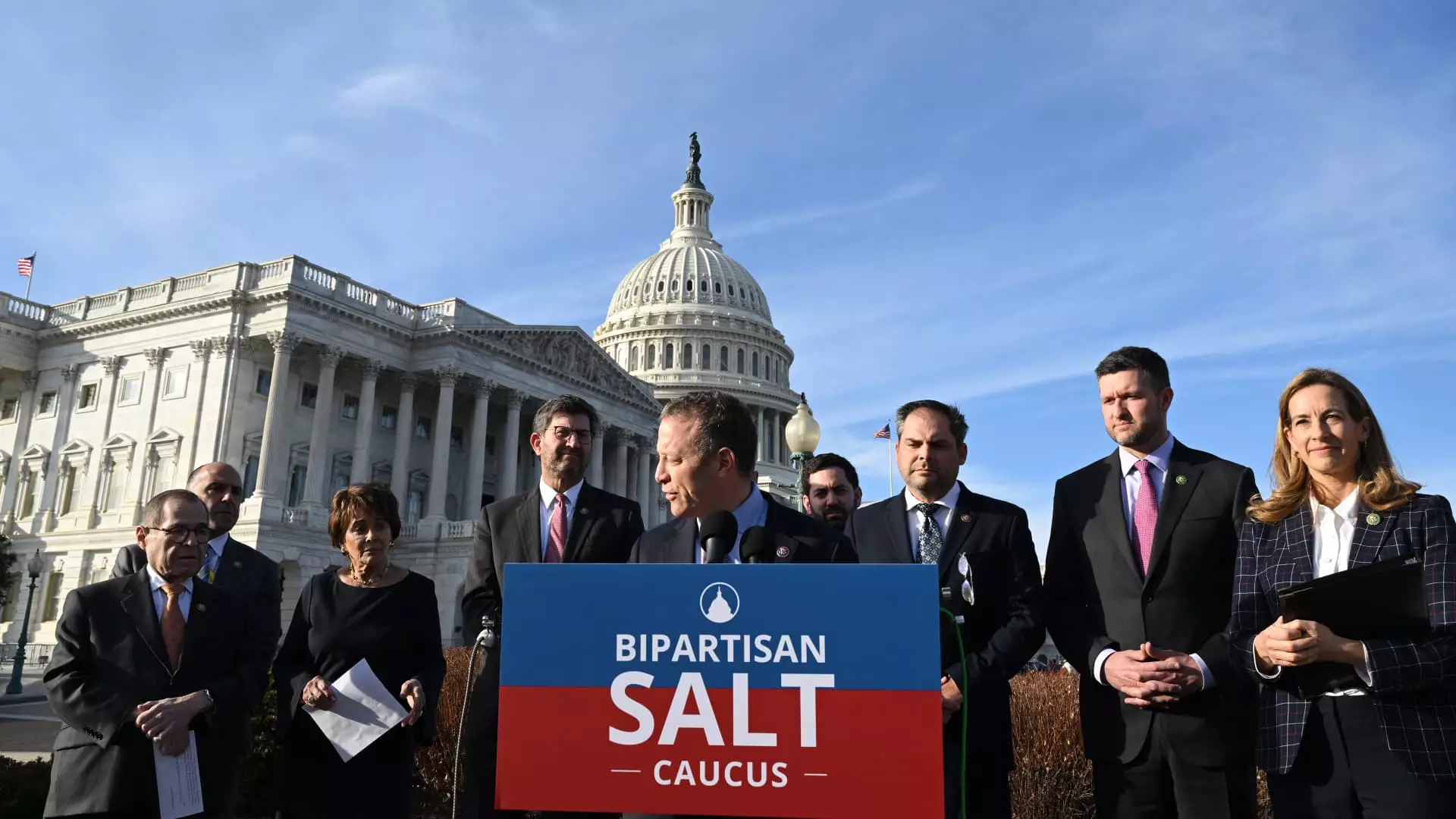The state and local tax (SALT) deduction cap, instituted under the Tax Cuts and Jobs Act (TCJA) of 2017, has come under scrutiny as debates heat up around the future of President Donald Trump’s policy agenda. Set at a restrictive $10,000, this limit has created a significant disparity in tax deductions, particularly benefiting higher-income earners. As lawmakers from high-tax states such as California and New York begin to voice their concerns and push for reform, it’s critical to analyze who truly benefits from lifting this cap — and the stark implications it carries for the average American.
A Glimpse into the Numbers: Who Benefits?
At surface level, the SALT cap appears to be a straightforward tax reform intended to simplify the complexities of tax deductions. However, the real picture is painted in gradients far more complex than it may seem. An expert analysis reveals that nearly 90% of taxpayers currently opt for the standard deduction due to the high threshold set for itemized deductions. The wealthy, as always, have the tools and resources to navigate these intricacies effectively, leading to a skewed advantage in tax liabilities.
For high-income households, particularly those earning over $200,000 annually, raising the SALT deduction limit could provide a near-exclusive financial boon. These households would essentially soak up the financial benefits, while low and middle-income earners are left to grapple with the fallout of an increasingly inequitable tax landscape. This raises an essential philosophical question: Do we want our fiscal policies perpetuating inequality or creating a more balanced economic landscape?
The Marriage Penalty: More Than Just a Tax Issue
One proposal suggests that the SALT limit for married couples be raised to $20,000, a move that could eliminate the so-called “marriage penalty” in federal tax liabilities. Sounds reasonable, right? Yet, in reality, this would serve as a massive tax break primarily for upper-middle-income families. The fact remains that, in our current political climate, elevating this cap is less of a bipartisan discussion and more an opportunity for the wealthier segments of our population to further entrench their financial superiority.
This is particularly evident in the demographic distribution of benefits; an analysis found that nearly three-quarters of all benefits would flow to households earning over $430,000. Such stark calculations are an indictment of a system that, even in times of crisis, fails to prioritize sustained economic support for the vast majority of its citizens.
Political Capital: The Role of Congress
As these discussions progress, we must also consider the political implications. A slim House Republican majority may amplify the voices of proponents pushing for SALT reform, potentially skewing negotiations in favor of upper-income Americans. The argument that raising the cap could streamline tax policy is compelling but deceptive, given the socioeconomic implications. The inherent bias towards wealthy constituents undermines the very foundation of equitable governance, perpetuating a cycle where affluent voices carry more weight than those of average citizens.
In a political landscape increasingly dominated by partisan divides, it’s disheartening to see fiscal policy being manipulated to serve just one segment of society while marginalizing significant portions of the populace who desperately need economic support. The fabric of our society is edified by shared burdens and mutual prosperity; when tax reforms prioritize the wealthy, we clearly step away from these ideals.
A Future of Disparity? What Lies Ahead
The possibility of change looms ahead, especially as the SALT provision approaches its expiration in 2025 without Congressional action. But what kind of reform are we advocating? Are we leaning towards an inclusive fiscal policy that benefits everyone, or merely reshuffling resources to favor a select few?
One thing is abundantly clear: if Congress allows the SALT cap to be lifted, it would solidify a pathway for the affluent to sidestep their civic responsibilities, further exacerbating the already glaring income inequality prevalent in our society. This sets a dangerous precedent, one where governmental policies aid the already successful while stifling opportunities for the less fortunate. We must advocate for reforms that prioritize fairness, equity, and a redistribution of wealth that serves to aid all members of our society, not just the upper echelons.

